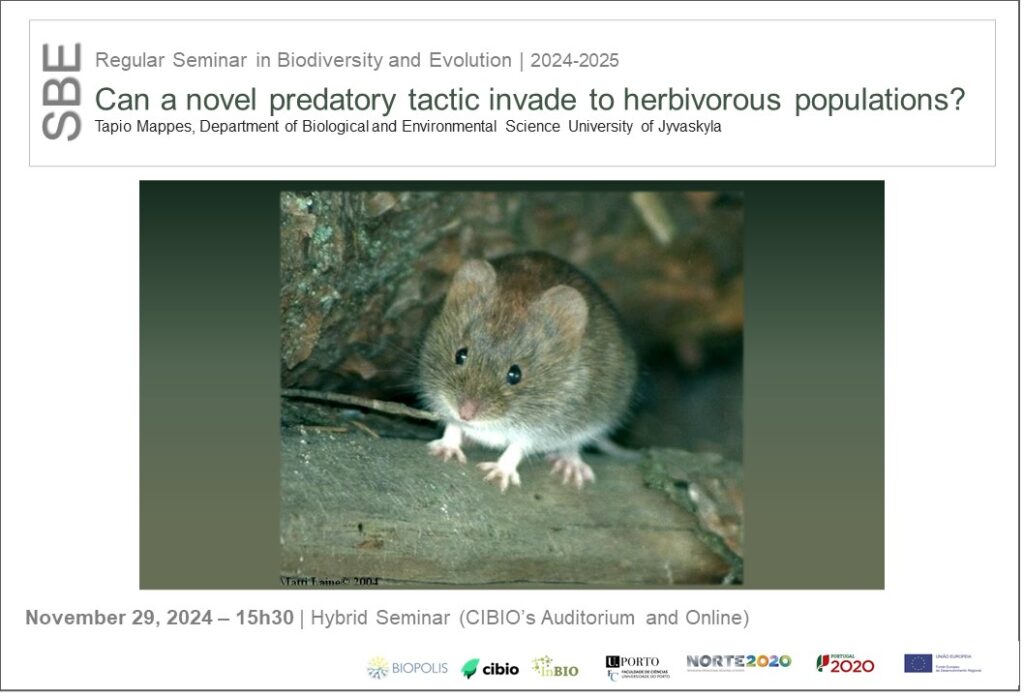Can a novel predatory tactic invade to herbivorous populations?
Tapio Mappes, Department of Biological and Environmental Science University of Jyvaskyla
November 29, 2024 | 15h30 | CIBIO’s Auditorium and Online (https://videoconf-colibri.zoom.us/j/99797933081)

In evolutionary history, predatory tactics have evolved numerous times within populations of herbivorous animals. Here we simulated the evolution of predatory tactics and tested whether a novel predatory tactic could be introduced into rodent populations with a predominantly plant-based diet. We utilized selection lines of the wild rodent species, the bank vole (Myodes glareolus), which had been selectively bred for predatory behavior, alongside unselected control lines. Our field experiment demonstrates that negative frequency-dependent (NFD) selection, which confers an advantage to a rare tactic, plays a pivotal role as an evolutionary mechanism. We also tested experimentally whether the costs of reproduction may determine invasion on predatory behaviour. We showed that both evolutionary mechanisms (NFD and reproductive costs) can facilitate the invasion of predatory tactics into populations. Additionally, our analysis of the reproductive success of females exhibiting different tactics suggests that NFD selection can support the stable coexistence of tactics within populations at a polymorphism ratio of 1:1. Our results provide novel evidence of the selective advantages of predatory behaviour, paving the way for future field studies to investigate the other behavioural or physiological costs and benefits associated with this widespread dietary strategy.
More information here